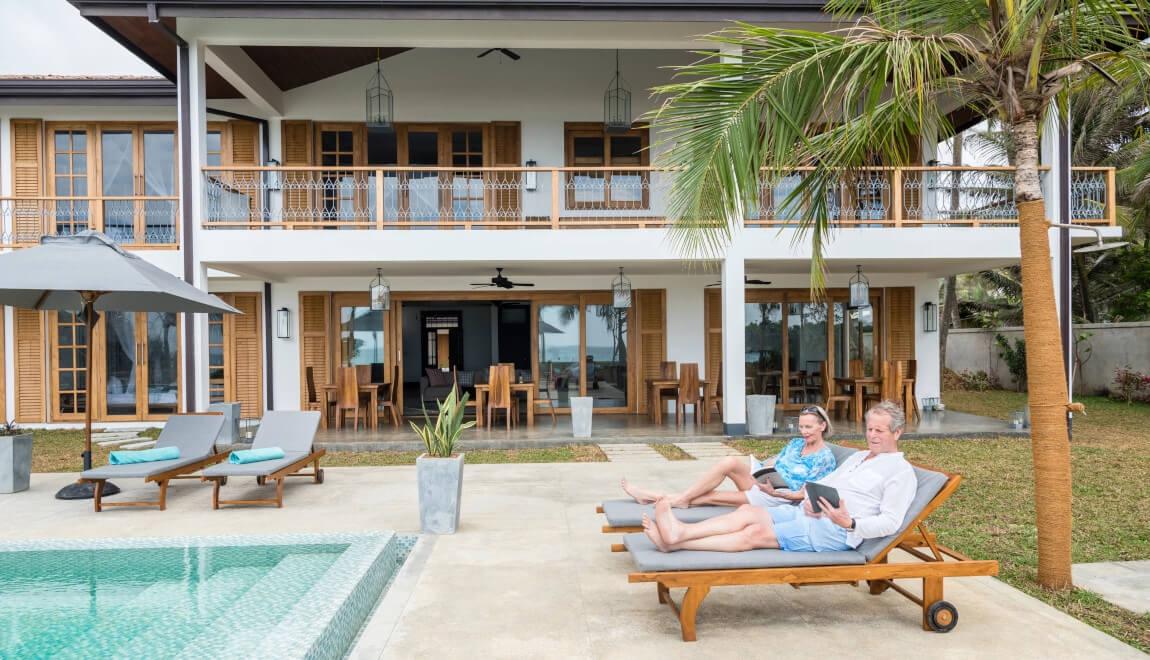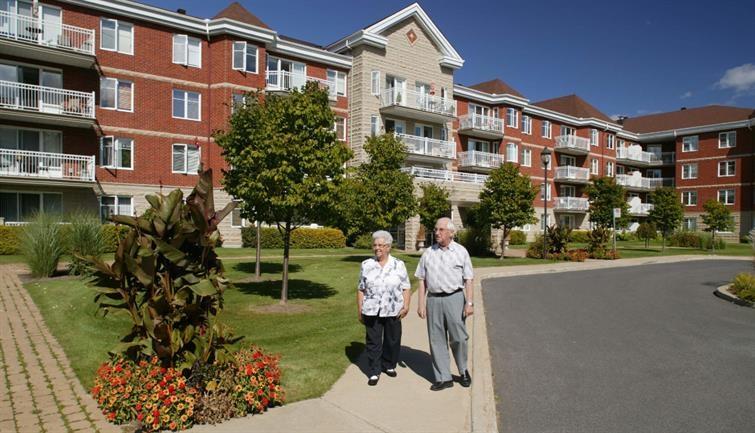If you’re reaching retirement age and looking to downsize your home, you might consider an apartment that will not only suit your needs but your budget as well. For older adults, that typically comes down to two options: a 55+ apartment or a traditional apartment.
But what are the differences between a 55+ apartment and one where anyone can live? What are the qualifications for residents? Each senior apartment community has different policies and features, but we’ll answer these questions in general below.
55+ Apartment Features and Amenities

Senior apartments are age-restricted to people typically 55 years old and older. Some may be restricted to 62 years old and older.
These apartments might be referred to numerous ways: as senior apartments, 55+ apartments, 62+ apartments, age-restricted apartments, or active adult apartments.
Although there are luxury senior apartments with higher price tags, most senior apartments are at market rates or below. Some others are specifically deemed low-income or affordable.
Senior apartments are built for older adults and offer senior-friendly conveniences and amenities. They usually offer one- and two-bedroom options and, occasionally, studios. Three-bedroom options aren’t common in 55+ and 62+ apartments communities, but they do exist.
Senior apartments often are located near the bus or public transportation lines and near medical centers. Some offer transportation services.
While their features differ between locations, 55+ apartment communities often include or emphasize the following:
- Fitness centers
- Swimming pools
- Walking paths
- Walk-in and lighted closets
- Step-in showers
- In-unit washers and dryers or community laundry facilities
- Elevators
- Emergency call systems
- Gated or controlled access
- Computer rooms and libraries
- Social areas and game rooms
- Arts and crafts rooms
- Planned activities
- Salons and barber shops
Note, however, that senior apartments are not the same as independent living communities, though they have many common features and amenities. The biggest differences are that independent living communities generally include meals and housekeeping as part of your rent.
Advantages of Living in a 55+ Apartment

Senior apartments offer many benefits over all-ages apartments. The biggest advantage is that you will live primarily with others in your age range. To qualify as 55+ housing and be able to prohibit children under 18, an apartment complex must restrict at least 80 percent of its units for households with at least one person over age 55.
So, if you live in a senior apartment, you won’t have to worry about children running around, and you shouldn’t have to deal with young adults throwing loud parties. (Don’t worry. Your grandchildren will still be able to come visit. The apartment complex, however, may have a rule on how long they can stay.)
Other benefits of senior apartments include:
- Planned activities: Senior apartments often have daily, weekly, and monthly scheduled activities for residents. These can include arts and crafts, board games, movie nights, exercise classes, and card game parties. These allow you to meet and spend time with your neighbors.
- Security: Many senior apartments have gone above and beyond by adding extra security measures such as cameras and emergency alert systems. Some also have security-patrolled grounds and even security guards posted at entryways.
Costs and Qualifications for 55+ Apartments

The cost to rent a senior apartment varies. There are, however, three pricing categories of senior apartments available:
- Affordable: Based on the local cost of living, renters in these low-income senior apartments pay about 30 percent of their income for rent and utilities. Local, state, and federal laws also determine pricing.
- Market rate: These senior apartments are offered at competitive rates, usually at or slightly below the cost of local all-age apartments.
- Luxury: These high-end senior apartments can sometimes be used as a second residence and often are located near cultural activities.
As for qualifications, you typically need to be at least 55 years old, as noted above. Also, you must meet other criteria such as a credit check and being able to pay your rent each month.
Find a 55+ Community Near You
You’ll find age-restricted 55+ and 62+ communities in cities across the United States on After55.com. Just look for the 55+ Communities under Senior Housing Options. The following cities are some of the most popular for 55+ communities on After55.com.




